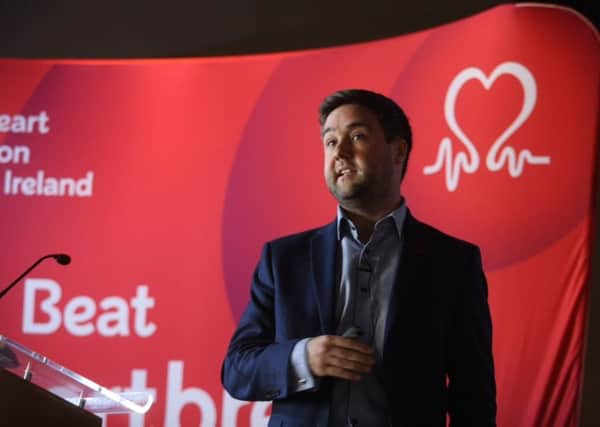David McColgan: With your help, BHF is still looking for answers to mend our broken hearts


But world-leading research, which the BHF has helped fund, has transformed how we now prevent, diagnose and treat a vast spectrum of these conditions. The annual number of heart and circulatory disease deaths has fallen by half. Today at least seven out of 10 people survive a heart attack and eight of ten babies diagnosed with congenital heart disease will survive to adulthood.
Progress in cardiovascular research has transformed the nation’s heart health and BHF-funded scientists have been at the forefront. There is much to be proud of. But this is not the end of the journey. Far from it. The world has changed since the 1960s and so have the problems we face.
Advertisement
Hide AdAdvertisement
Hide AdWorryingly, following years of decline, heart and circulatory diseases are on the increase for much of the country – and so too the number of people with many of the risk factors for these diseases. As we approach the start of a new decade, almost three in 10 of us in Scotland will still die from heart and circulatory diseases. While many more are surviving heart attacks, people are now living longer with complex conditions like heart failure. Strokes are leaving thousands permanently disabled. Obesity levels are rising and more people than ever are being diagnosed with type 2 diabetes. The human toll is immense and the financial burden to NHS Scotland of heart and circulatory diseases is around £800m a year.
The need to fund more research to find answers fit for the 21st century is paramount and as the largest independent funder of cardiovascular research in Scotland and the UK, the BHF is determined to tackle these challenges head on and to collaborate with others to find solutions to save and improve lives.
In Scotland alone we support 245 research staff and are currently funding £66m of world leading science into the prevention and treatment of heart and circulatory diseases, like heart failure, stroke and vascular dementia and the risk factors that cause them, such as high blood pressure and diabetes.
Our two Centres of Research Excellence in Edinburgh and Glasgow are at the forefront of much of this work but we also fund scientists in institutions across the country, all working with a common purpose.
We’re investing £2.7m in regenerative medicine to help advance the quest to mend broken hearts and find the breakthroughs of the future. This is in addition to our funding for a dedicated Centre of Regenerative Medicine, led by Professor Andrew Baker at the University of Edinburgh.
We’re carrying out research into strokes – worth £7.4m at Edinburgh University and at the University of Glasgow – which cause around 3,800 deaths in Scotland a year. We want to reduce the risk of them from happening in the first place by tackling risk factors and we’re looking for better ways to treat the 130,000 people living here who’ve had a stroke.
Diabetes is another area of concern. Adults with diabetes are nearly twice as likely to die from heart attack or stroke as those without. Around 320,000 adults in Scotland have been diagnosed with diabetes but it’s estimated thousands more are undiagnosed. We’re currently funding £2m worth of projects across the country to understand how diabetes affects our hearts and blood vessels and to find new ways to prevent and treat this damage and combat the development of heart and circulatory diseases.
By 2050 it’s predicted that the number of people living with vascular dementia could double. We know that people with a history of heart disease are at least twice as likely to develop vascular dementia. We need to increase our understanding of what causes it and how it progresses to try to find better ways to prevent, treat and reverse its effects. At the Universities of Edinburgh and Glasgow, we’re investing £2.5m to do just that.
Advertisement
Hide AdAdvertisement
Hide AdAlongside this, this year we launched The Big Beat Challenge – a single research award of up to £30m for the world’s greatest minds to tackle the world’s biggest killers. The award aims to encourage researchers from around the world to collaborate and develop ideas on a scale above and beyond traditional research schemes.
Of course, all of this investment is only made possible through donations from the public to the BHF and we owe each and every one of our supporters a huge debt of gratitude as we simply couldn’t continue without them.
It is true, there are a great many challenges ahead but we are determined past successes will drive us forward and, working together with others who share our goals, will help us beat heartbreak forever.
David McColgan, Head of BHF Scotland